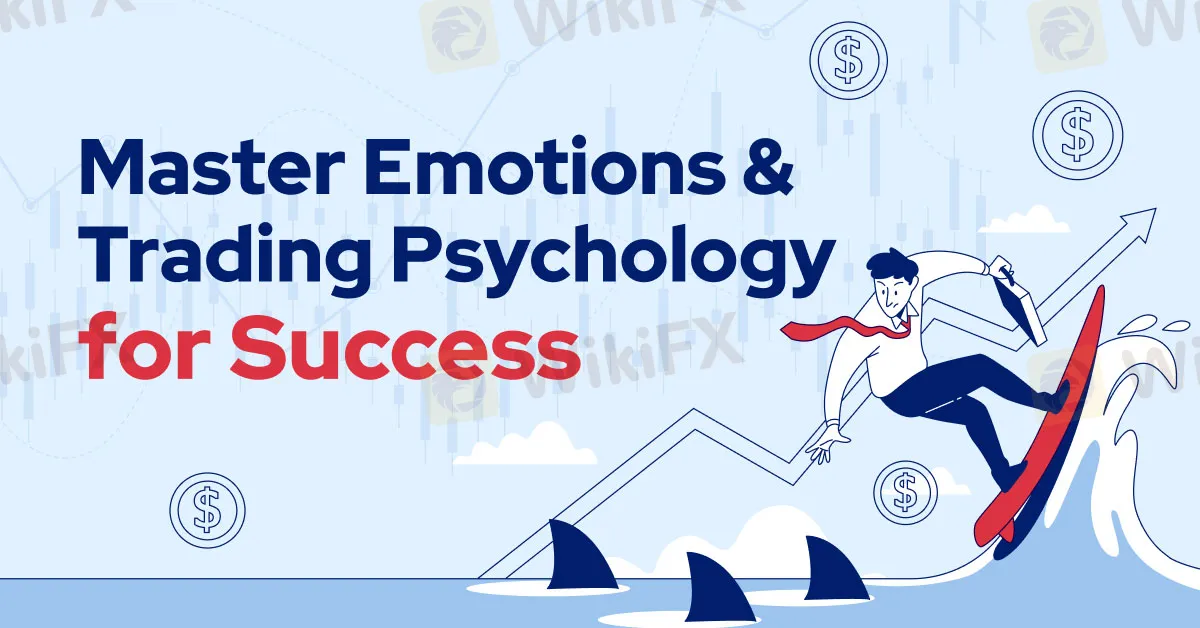Abstract:Trading in the dynamic and often unpredictable worlds of Forex and cryptocurrencies requires more than just technical analysis and market knowledge. It demands a mastery of emotions and a deep understanding of trading psychology. In this article, we will explore the critical role emotions play in trading and strategies to navigate them for lasting success in the financial markets.

Trading in the dynamic and often unpredictable worlds of Forex and cryptocurrencies requires more than just technical analysis and market knowledge. It demands a mastery of emotions and a deep understanding of trading psychology. In this article, we will explore the critical role emotions play in trading and strategies to navigate them for lasting success in the financial markets.
Emotions, particularly fear and greed, are integral components of the human experience and can significantly impact trading decisions. Fear may lead to hesitation or avoidance of necessary risks, while greed can foster impulsivity and excessive risk-taking. Acknowledging these emotions and learning to manage them is crucial for any trader aiming to thrive in the ever-changing landscape of financial markets.
One of the primary emotions that traders grapple with is fear. Fear of loss, fear of missing out (FOMO), and fear of making the wrong decision can cloud judgment and lead to suboptimal choices. To master fear, it's essential to have a well-defined trading plan. This plan should include entry and exit points, risk tolerance, and profit targets. When armed with a clear strategy, traders can navigate uncertainties with greater confidence, reducing the impact of fear on decision-making.
Another emotion that often influences trading is greed. The desire for quick profits can lead to impulsive actions and excessive risk-taking. Traders should cultivate discipline and patience to counteract greed. Setting realistic profit expectations and adhering to a risk management plan are effective ways to temper the influence of greed. By focusing on consistent, controlled gains rather than chasing elusive windfalls, traders can build a sustainable and resilient trading approach.
Understanding the psychological concept of loss aversion is vital for successful trading. Loss aversion refers to the tendency of individuals to feel the pain of losses more intensely than the pleasure of gains. Traders must learn to accept losses as a natural part of the process and not let them dictate emotional responses. Implementing stop-loss orders and embracing a mindset that views losses as learning opportunities rather than failures can help overcome the detrimental impact of loss aversion.
Patience is a virtue in trading, and impatience can be a significant barrier to success. The fear of missing out on potential profits can lead to premature entries into trades or staying in positions longer than necessary. To counteract impatience, traders should wait for optimal setups, trust their analysis, and avoid chasing the market. Patience allows for a more selective and disciplined approach to trading, minimizing unnecessary risks.

Maintaining a balanced emotional state during periods of market volatility is paramount. Extreme market conditions can trigger emotional responses, leading to irrational decision-making. Successful traders develop resilience and emotional intelligence to stay focused during turbulent times. Regular self-reflection, mindfulness practices, and stress management techniques can contribute to maintaining a composed and rational mindset under pressure.
Continuous learning is fundamental in the ever-evolving landscape of financial markets. Traders should invest time in expanding their knowledge of both market dynamics and trading psychology. Books, online courses, and mentorship programs are valuable resources to enhance trading skills and develop a deeper understanding of the psychological aspects of trading.
In conclusion, mastering emotions and trading psychology is a continuous journey for any trader seeking sustainable success in the Forex and crypto markets. By acknowledging and understanding emotions, implementing disciplined strategies, and embracing continuous learning, traders can navigate the complexities of the financial markets with confidence and resilience. Remember, successful trading is not just about analysing charts; it's about mastering the art of self-control and emotional intelligence.











